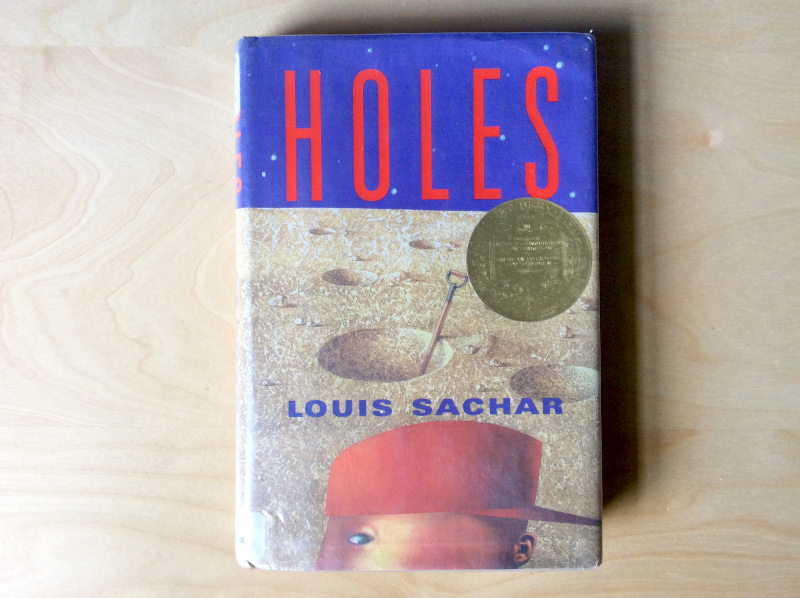Books of My Childhood
Holes
Posted 26 Aug 2017
I can’t recall why I first picked up Holes. I was mostly a reader of science fiction and fantasy, and didn’t typically read a book just because it had a medal on its cover. I was never quite sure whether I liked it, even, though I did read it several times. What really kept me engaged with it, I think, was a sense that it was deeper, more profound, than other books I’d read.

Holes, written by Louis Sachar, is the story of one Stanley Yelnats, a kid who is sent to a hellish camp for juvenile delinquents, Camp Green Lake. His crime: he unknowingly stole a pair of sneakers that were meant to raise money for a homeless shelter. This miscarriage of justice he ascribes to his family’s history of bad luck, brought on by his “no-good dirty-rotten pig-stealing great-great-grandfather.” While initially played for laughs, this detail, like most details in Holes, becomes highly significant to the plot. Stanley’s story, and the story of his ancestors, are joined tightly together in a multigenerational jigsaw puzzle.
The book has frequent interludes that delve back into the past, which is populated with colorful characters like Madame Zeroni (a mysterious woman who cursed Stanley’s great-great grandfather), Sam the onion vendor (who claims that onions can cure all ills), and Kissin’ Kate Barlow (a Wild West outlaw who stole a small fortune from Stanley’s great-grandfather). Though Stanley is unaware of their influence, these peoples’ stories are entwined with his own, and the way that Sachar slowly brings the pieces of the disparate time periods together is quite ingenious.
In the present, Stanley and his fellow “campers” are tasked with digging enormous holes in a dry lake bed. This, they are told, will build character. The chapters taking place at Camp Green Lake mostly consist of small-scale drama played out between the campers, their overseers, and an enigmatic woman known only as the Warden. The most significant character here is a kid called Zero, an outcast of the group whom Stanley comes to befriend. Zero starts out very opaque and slowly develops into a more complex character as the story goes on. The other campers are painted in relatively broad strokes, and never take on much significance to the story. In a book that has characters in three different time periods, there simply isn’t room for everyone to get the full treatment.
The great strength of Holes is in its tightly constructed narrative, in which every detail is packed with significance that isn’t revealed until later on. One extremely ancillary character, Stanley’s favorite baseball player, is established to have stinky feet, and even that proves to be an important plot point. Finding out how everything fits together is the joy of the book–and as such I will write no more about it. To spoil the story in a review would be a shame. I’ve said too much already.
I didn’t have a strong recollection of Holes when I began rereading it, and rediscovering its secrets made for some really enjoyable reading. If you’ve never experienced Stanley Yelnats’s journey before, I highly recommend you give it a look.